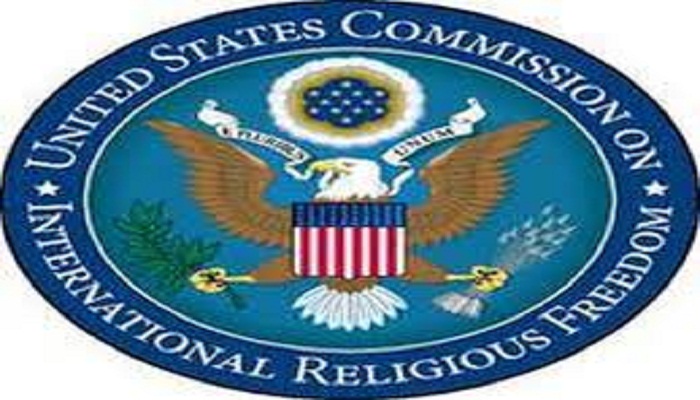Religious freedom conditions in Pakistan continue to worsen: US rights commission
Sun Online Desk
Published: 25 Apr 2021

Religious freedom conditions in Pakistan continue to worsen as the government systematically enforced blasphemy and anti-Ahmadiyya laws, according to a report released by the United States Commission on International Religious Freedom (USCIRF).
The USCIRF on Wednesday released its 2021 Annual Report documenting developments during 2020.
"Religious freedom conditions in Pakistan continued to worsen. The government systematically enforced blasphemy and anti-Ahmadiyya laws and failed to protect religious minorities from abuses by non-state actors. There was a sharp rise in targeted killings, blasphemy cases, forced conversions, and hate speech targeting religious minorities," the report stated.
In its report, USCIRF stated that Pakistan's treatment of religious minorities is best assessed through the prism of its treatment of the Ahmadiyya community, who continue to face severe official and societal persecution for their beliefs and self-identification as Muslims.
"The year saw a surge in targeted killings of Ahmadis. Between July and November, five Ahmadis were murdered, including 57-year-old Tahir Naseem, an American citizen accused of blasphemy who was shot in a courtroom in July.
"In May, the government formed the National Minorities Commission (NMC) required by a 2014 Supreme Court decision, however Ahmadis were excluded," the report said.
It further stated that Pakistan's religiously discriminatory legislation, such as the blasphemy and anti-Ahmadiyya laws, used in combination with new media rules, contributed to egregious human rights abuses and fostered an overall atmosphere of intolerance for religious minorities that often leads to violence and discrimination.
In August, over 40 blasphemy First Incident Reports (FIRs) were registered, mostly targeting the Shia minority during the month of Muharram.
In 2020, there reportedly were 30 Christians, including seven on death row, jailed in Pakistan on charges of blasphemy, said the report.
Source: ANI

